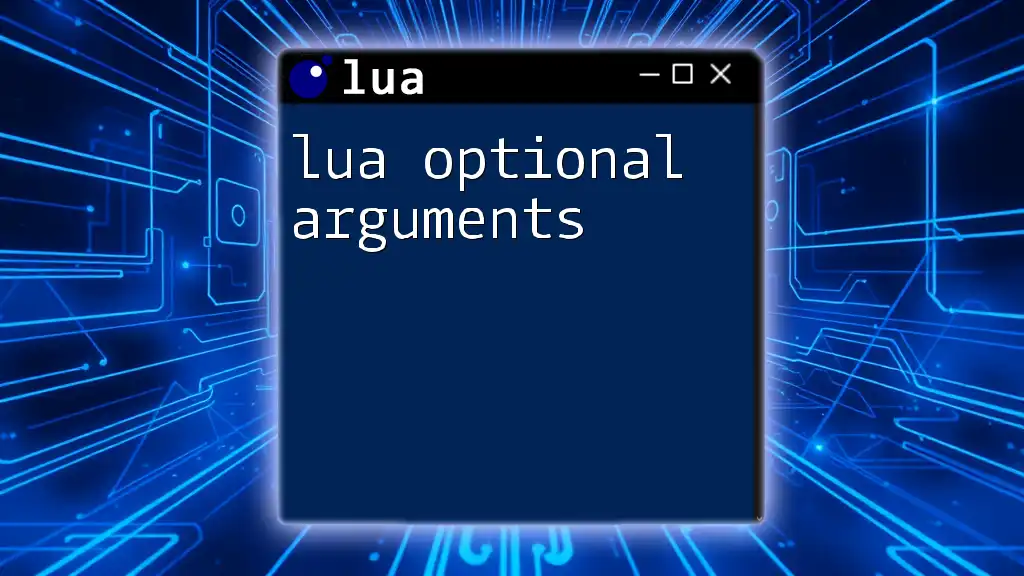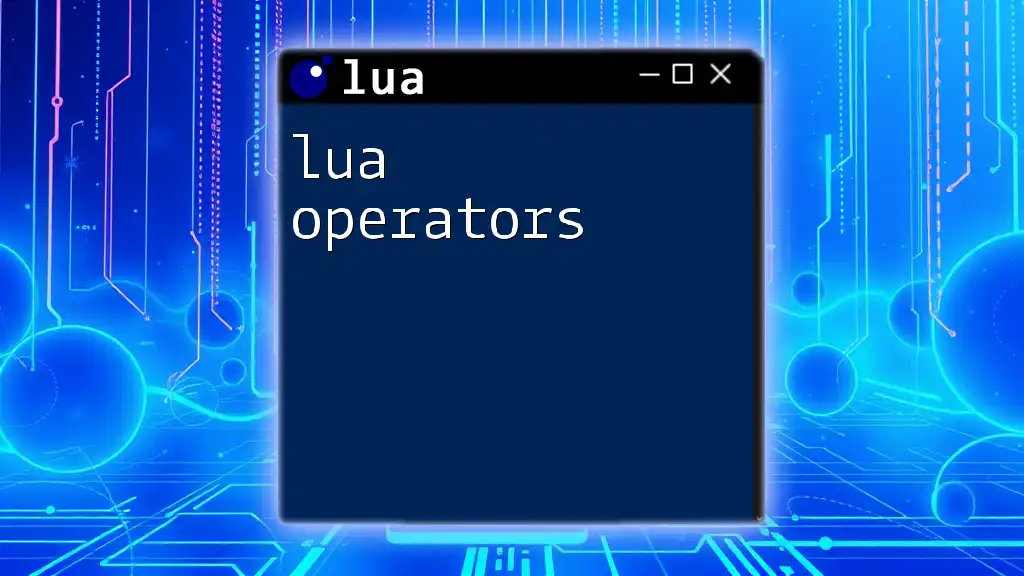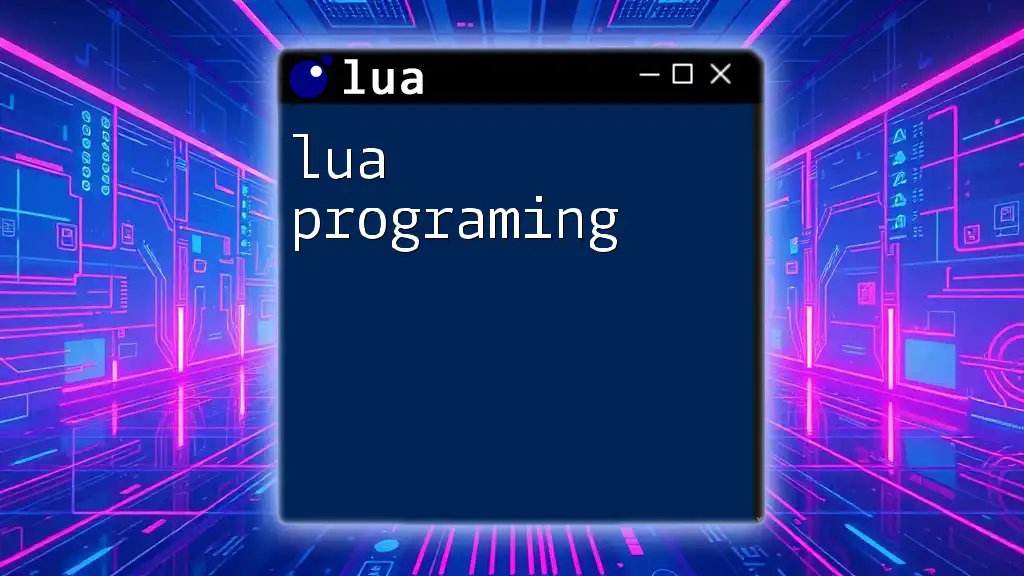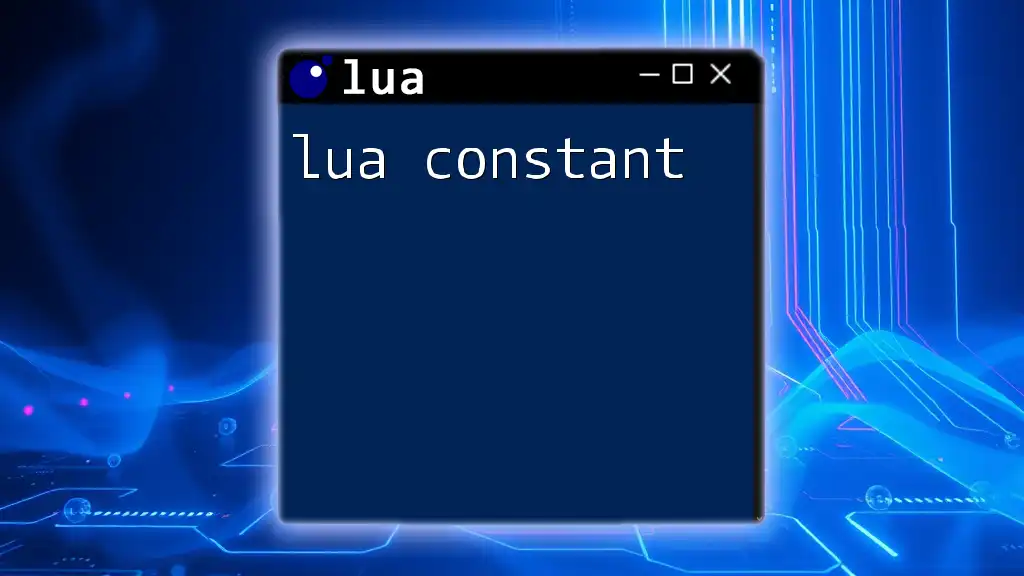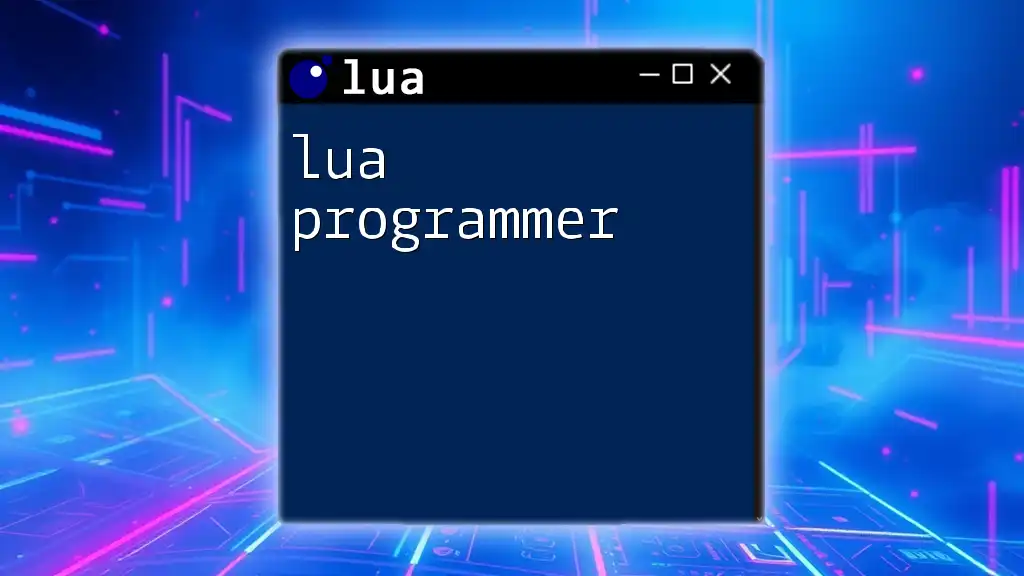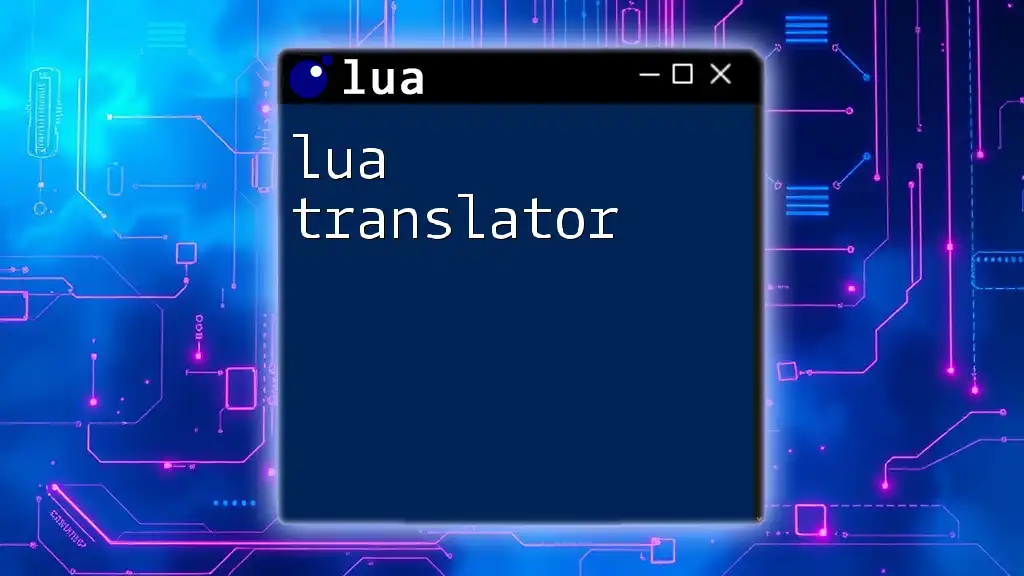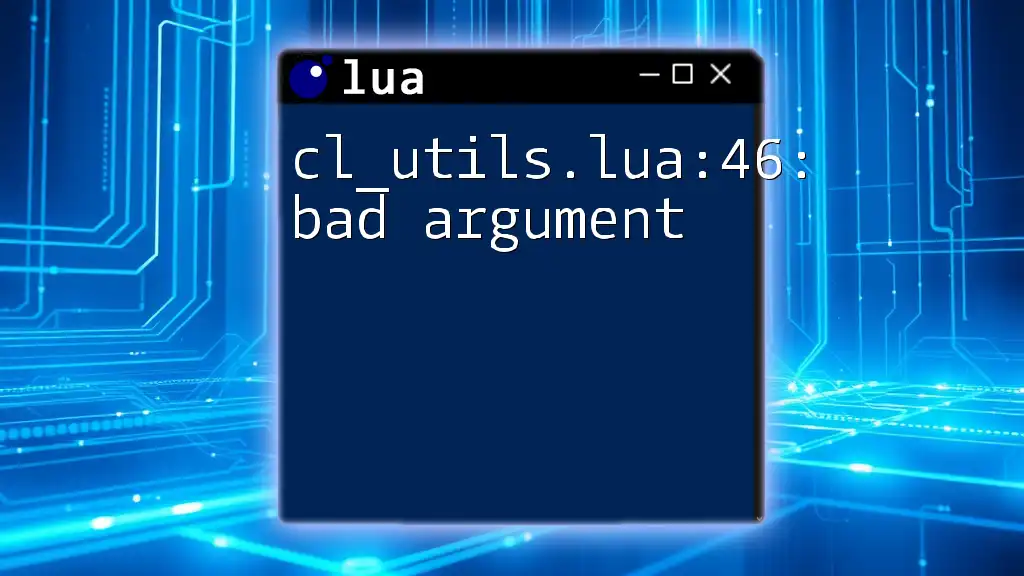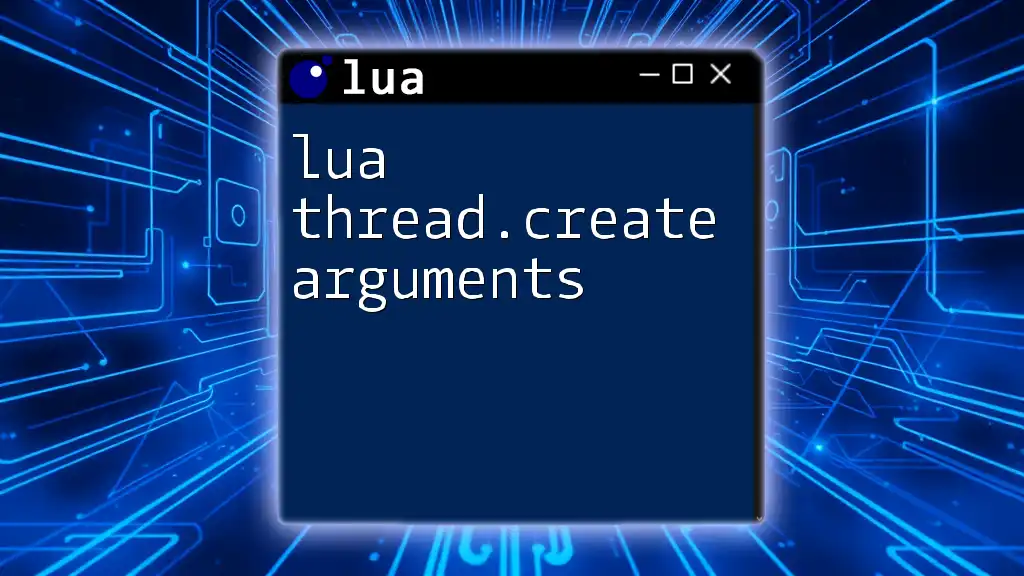In Lua, optional arguments allow functions to be called with fewer parameters than defined, wherein missing arguments default to `nil`, thereby enabling flexible function calls.
function greet(name, greeting)
greeting = greeting or "Hello" -- Default to "Hello" if greeting is not provided
print(greeting .. ", " .. name .. "!")
end
greet("Alice") -- Output: Hello, Alice!
greet("Bob", "Hi") -- Output: Hi, Bob!
What Are Optional Arguments?
Optional arguments in Lua are parameters in a function that may or may not be provided by the caller. They allow developers to create more flexible and concise functions by letting some parameters default to a predetermined value if not supplied. This functionality becomes extremely useful for simplifying function calls and reducing the overhead when dealing with numerous parameters.
Use Cases
When designing functions, optional arguments are helpful in various scenarios. For example, when you have a function that processes or formats data, you often want the ability to modify its behavior without breaking backward compatibility. By using optional arguments, you can:
- Keep the function interface clean and minimal.
- Avoid unnecessary function overloads.
- Enable defaults for parameters that are not always critical.

How to Define Optional Arguments in Lua
Basic Function Structure
A standard function in Lua usually requires parameters to be passed explicitly. For example, consider the following simple function:
function greet(name)
print("Hello, " .. name)
end
Adding Optional Arguments
To introduce optional arguments, you can utilize the `nil` value to denote that a certain argument is not provided. You can also assign default values by using the `or` operator. This operator allows you to specify a fallback value in the case of a `nil` argument. Here’s how:
function greet(name, greeting)
greeting = greeting or "Hello"
print(greeting .. ", " .. name)
end
In this example, if the `greeting` is not supplied, it defaults to "Hello".

Implementing Optional Arguments: Best Practices
Using `or` for Default Values
Setting default values for optional arguments is straightforward using the `or` operator. For instance, let's extend our greeting function to include punctuation:
function greet(name, greeting, punctuation)
greeting = greeting or "Hello"
punctuation = punctuation or "!"
print(greeting .. ", " .. name .. punctuation)
end
This way, users can call `greet("Alice")`, `greet("Bob", "Hi")`, or `greet("Charlie", "Welcome", ".")`, and the function retains flexibility and usability.
Combining Required and Optional Arguments
You may also want to mix required and optional parameters. For instance, if you want to calculate a total price, you can define a function as follows:
function calculateTotal(price, tax_rate, discount)
discount = discount or 0
return (price + (price * tax_rate)) - discount
end
Here, `price` and `tax_rate` are mandatory, while `discount` is optional and defaults to `0` if not provided, ensuring that every user of the function can operate under various conditions without confusion.
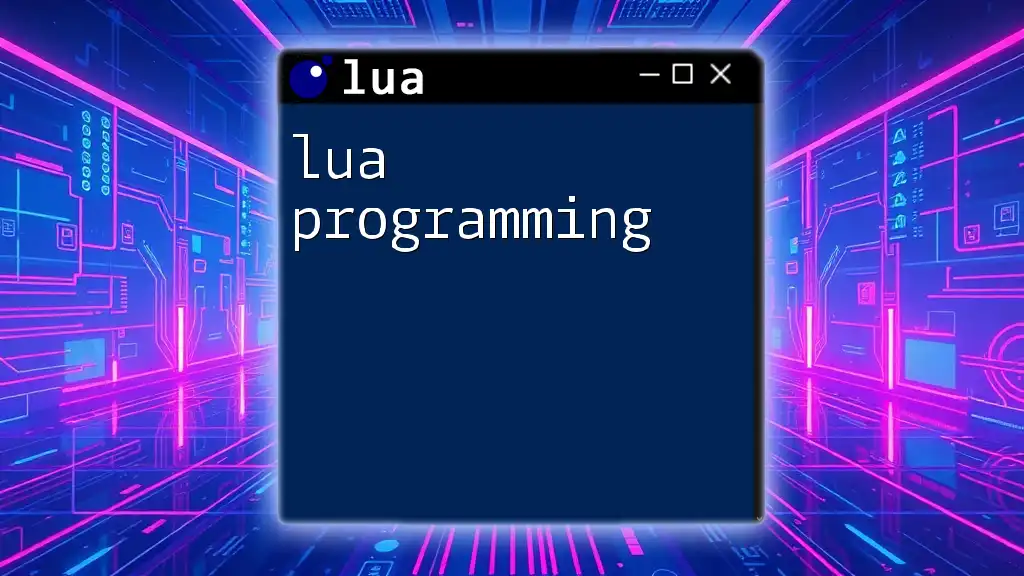
Handling Multiple Optional Arguments
Table as an Argument
Another effective method for managing multiple optional arguments is to pass a table. This approach allows for a cleaner function signature and enables flexibility in the number of optional parameters specified. Here’s an example:
function createUser(config)
local user = {
name = config.name or "Unknown",
age = config.age or 18,
email = config.email or "no-email@example.com"
}
return user
end
By passing a table, users can provide any combination of the `name`, `age`, and `email`, with the function ensuring defaults where values are omitted.

Advantages of Using Optional Arguments
Improved Code Readability
Using optional arguments significantly enhances code readability. Functions become less cluttered, concentrating only on the necessary parameters required for effective operation. This clarity reduces cognitive load while writing and reading code.
Enhanced Flexibility
Optional arguments introduce a level of flexibility that allows developers to tailor function calls according to their specific needs. Functions can adapt easily without the need for creating multiple versions or overloading functions, leading to more maintainable code.
Backward Compatibility
Maintaining backward compatibility is crucial when updating codebases or libraries. Optional arguments allow developers to introduce new features without breaking existing function calls, which is vital in collaborative or large-scale projects.

Common Pitfalls and How to Avoid Them
Clarity vs. Confusion
While optional arguments can make functions flexible, overly complex use of optional parameters can lead to confusion. It’s critical to document your functions clearly to ensure that users understand how to utilize optional arguments effectively.
Type Safety
When using optional arguments, ensure you implement type-checking mechanisms where necessary. Relying solely on `nil` checks can sometimes lead to unintended behaviors. For example:
function riskyFunc(arg1, arg2)
-- Bad practice: relying on nil check without type checking
if arg2 then
print("Processing: " .. arg1 .. " and " .. arg2)
else
print("Processing: " .. arg1)
end
end
This function may behave unexpectedly if users pass in types that can’t be evaluated properly (like a false boolean).
Examples of Poor Usage
Falling into the trap of relying too heavily on optional arguments without thoughtful consideration can result in a poorly designed API. Aim for a balance between flexibility and simplicity.

Conclusion
Understanding how to effectively use lua optional arguments is essential for creating clean, maintainable, and efficient code. With the ability to simplify function interfaces, reduce clutter, and retain backward compatibility, mastering optional arguments will enhance your Lua programming skills. Practicing these principles in your projects can lead to more versatile and user-friendly functions.

Further Reading and Resources
For those looking to delve deeper into optional arguments in Lua or explore more functionalities, consider referring to the official Lua documentation or enrolling in specialized courses that focus on advanced Lua programming techniques. These resources will help solidify your understanding and application of Lua's powerful features.

